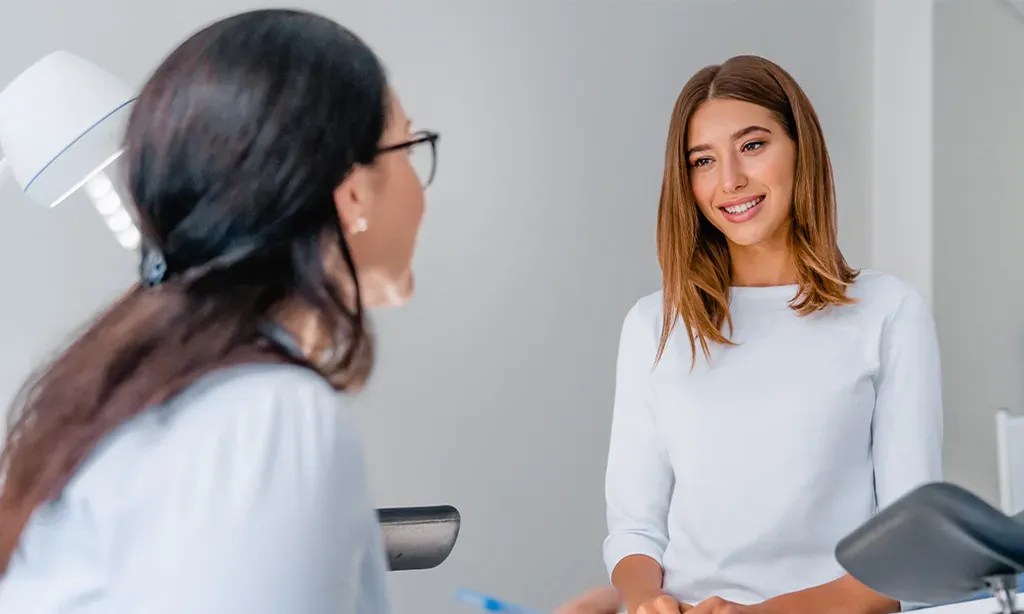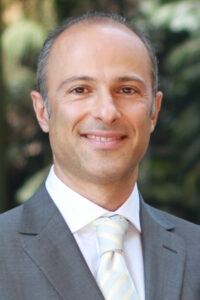What is Anorgasmia (Orgasm Disorder)?
Anorgasmia, also known as orgasm disorder, is a type of sexual dysfunction that affects both men and women. It is characterized by the inability to achieve orgasm, even with sufficient sexual stimulation. Anorgasmia can be either primary or secondary. Primary anorgasmia is when an individual has never experienced an orgasm, while secondary anorgasmia is when an individual has previously experienced orgasms but is no longer able to do so.
There are several types of anorgasmia, including:
- Lifelong anorgasmia: a condition where an individual has never experienced an orgasm.
- Acquired anorgasmia: a condition where an individual has previously experienced orgasms but is no longer able to do so.
- Situational anorgasmia: a condition where an individual is only able to achieve orgasm in certain situations or with certain partners.
- Generalized anorgasmia: a condition where an individual is unable to achieve orgasm in any situation or with any partner.
Anorgasmia can be caused by a variety of factors, including physical, psychological, and emotional issues. Some common causes include medications, hormonal imbalances, chronic illnesses, and relationship problems. Treatment for anorgasmia usually involves a combination of therapies, such as talk therapy, sexual therapy, and medication. It is important to seek medical advice if you are experiencing symptoms of anorgasmia, as it can have a significant impact on your mental and emotional well-being.
What is Vaginal Rejuvenation for Anorgasmia?
Vaginal rejuvenation therapies such as ThermiVa vaginal rejuvenation uses gentle but effective radio frequency waves to restore elasticity and sensation to the vagina and clitoris. ThermiVa results in a tighter vagina that is more sensitive to stimulation both outside the vagina in the clitoris and labia, as well as internally in the G-spot.
You can see vaginal rejuvenation before and after photos here to see the physical transformation that this powerful therapy provides.
Anorgasmia in Women
Causes of Anorgasmia in Women
Anorgasmia in women can be caused by various factors, including psychological, physical, and hormonal factors. Psychological factors such as stress, anxiety, depression, and relationship issues can affect a woman’s ability to have an orgasm. Physical factors such as medical conditions, medications, and surgeries can also contribute to anorgasmia. Hormonal factors such as low levels of estrogen and testosterone can also play a role in anorgasmia.
Top Reasons why Women Can’t Orgasm
There are several reasons why women may experience difficulty achieving orgasm. Some of the top reasons include lack of sexual stimulation, lack of knowledge about their own bodies, and anxiety or stress. Women may also have difficulty achieving orgasm due to medical conditions such as diabetes, multiple sclerosis, or pelvic surgery.
- Vaginal Dryness
- Vaginal Looseness
- Loss of sensitivity as they approach menopause
- Sexual or emotional abuse
- Poor body image
- Feelings of guilt or embarrassment
- Cultural and religious influences
- Long-term or severe stress
- Anxiety and depression
- Lack of emotional connection
- Relationship difficulties
- Partner’s sexual problems, like erectile dysfunction
- Excessive alcohol intake
- Smoking
- Gynecological surgery
Long-term health conditions like diabetes and multiple sclerosis (MS) can affect your ability to orgasm. Difficulty orgasming can also be caused by prescription medication to treat blood pressure, allergies, and depression.
Changes to your body that come with aging can result in difficulty orgasming and other sexual health problems. Menopause, when levels of estrogen (a female sex hormone) fall, is often the start of age-related sexual troubles. These can include vaginal dryness and loss of sexual desire.
What Hormones Play a Role in the Female Orgasmic Process?
Several hormones play a role in the female orgasmic process. Estrogen and testosterone are two hormones that contribute to sexual desire and arousal in women. Oxytocin, also known as the “love hormone,” is released during sexual activity and contributes to feelings of pleasure and bonding. Serotonin and dopamine are also involved in the female orgasmic process and contribute to feelings of pleasure and well-being.
Anorgasmia Treatment for Women
Treatment for anorgasmia in women depends on the underlying cause. Psychological counseling, sex therapy, and relationship counseling may be helpful for women experiencing anorgasmia due to psychological factors. Hormone therapy may be recommended for women with low levels of estrogen or testosterone. Testosterone naturally occurs in women, although usually in lower levels than in me, and is an important hormone connected to libido and energy levels.
Top Anorgasmia Treatment in Women:
1. ThermiVa Radio Frequency Treatment
2. Bioidentical Hormone Replacement Therapy BHRT
3. Couples Therapy or Sex Therapy
Anorgasmia in Men
Causes of Anorgasmia in Men
Anorgasmia in men is a type of sexual dysfunction that is characterized by the inability to achieve orgasm during sexual activity. There are several causes of anorgasmia in men, including medication-induced, psychogenic, endocrine, and genitopelvic dysesthesia.
Top Causes of Anorgasmia in Men
1. Prostate Cancer
2. BPH
3. Sexually Transmitted Diseases
4. Prostatitis
5. Low Testosterone
Medications such as antidepressants and antipsychotics can cause anorgasmia in men. Psychogenic causes of anorgasmia include anxiety, depression, and relationship problems. Endocrine causes of anorgasmia in men include low levels of testosterone, thyroid dysfunction, and pituitary gland disorders. Genitopelvic dysesthesia is a condition that causes pain and discomfort in the genital area, which can lead to anorgasmia.
Anorgasmia Treatment for Men
The treatment for anorgasmia in men depends on the underlying cause. If medication is causing anorgasmia, the healthcare provider may switch the patient to a different medication or adjust the dosage. If psychogenic causes are suspected, therapy or counseling may be recommended to address any underlying psychological issues.
Endocrine causes of anorgasmia in men may require hormone replacement therapy or other medical interventions. Genitopelvic dysesthesia may be treated with medication or physical therapy.
In some cases, lifestyle changes such as regular exercise, a healthy diet, and stress reduction techniques may help alleviate anorgasmia in men. It is important for men experiencing anorgasmia to speak with their healthcare provider to determine the underlying cause and develop an appropriate treatment plan.
Top Anorgasmia Treatment for Men:
1. Shockwave Therapy
2. Pulse Wave Therapy
3. Testosterone Replacement Therapy TRT
Frequently Asked Questions
Why do women experience difficulty in achieving orgasm after menopause?
Menopause is a natural process that occurs in women as they age, and it can lead to a decrease in estrogen levels. This decrease in estrogen levels can cause physical changes in the body, including vaginal dryness, which can make sexual activity uncomfortable or painful. Additionally, hormonal changes can affect sexual desire and arousal, making it more difficult for women to achieve orgasm.
Are there any natural remedies that can aid in achieving orgasm climax for women?
There are several natural remedies that may help women achieve orgasm, including:
- Kegel exercises to strengthen the pelvic floor muscles
- Yoga and meditation to reduce stress and anxiety
- Herbal supplements such as maca root or ginseng
- A healthy diet and exercise routine to improve overall physical health
However, it is important to note that these remedies may not work for everyone and should be used in conjunction with other forms of treatment if necessary.
How can menopause impact a woman’s ability to experience an orgasm?
As mentioned earlier, menopause can lead to physical changes in the body that can make sexual activity uncomfortable or painful. Additionally, hormonal changes can affect sexual desire and arousal, making it more difficult for women to achieve orgasm. Women may also experience a decrease in vaginal lubrication, which can make sexual activity uncomfortable or painful.
Can over-the-counter products effectively assist women in reaching climax?
There are several over-the-counter products that claim to help women achieve orgasm, such as lubricants, gels, and creams. While these products may help to increase vaginal lubrication and make sexual activity more comfortable, they may not necessarily increase sexual desire or arousal, which are necessary for achieving orgasm.
What is Coughlan’s syndrome and what are the treatment options?
Coughlan’s syndrome, also known as anorgasmia, is a condition in which a person has difficulty or is unable to achieve orgasm. Treatment options may include therapy, medication, or a combination of both. It is important to speak with a healthcare provider to determine the best course of treatment for individual needs.
What is post-orgasmic illness syndrome?
Post-orgasmic illness syndrome (POIS) is a rare condition in which a person experiences flu-like symptoms after orgasm. Symptoms may include fatigue, fever, headache, and muscle aches. Treatment options may include medication or avoiding triggers that may exacerbate symptoms. It is important to speak with a healthcare provider to determine the best course of treatment for individual needs.


You must be logged in to post a comment.